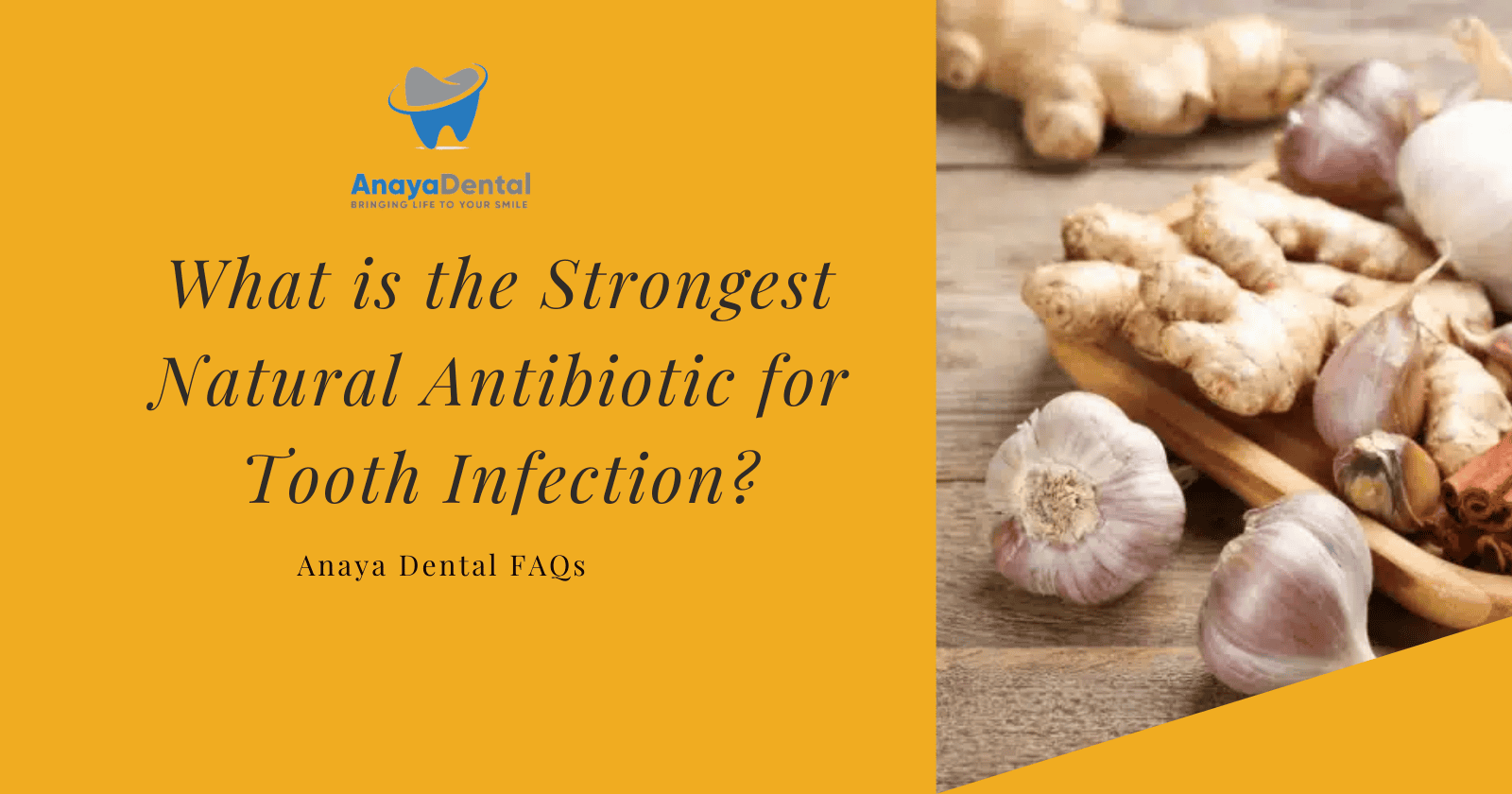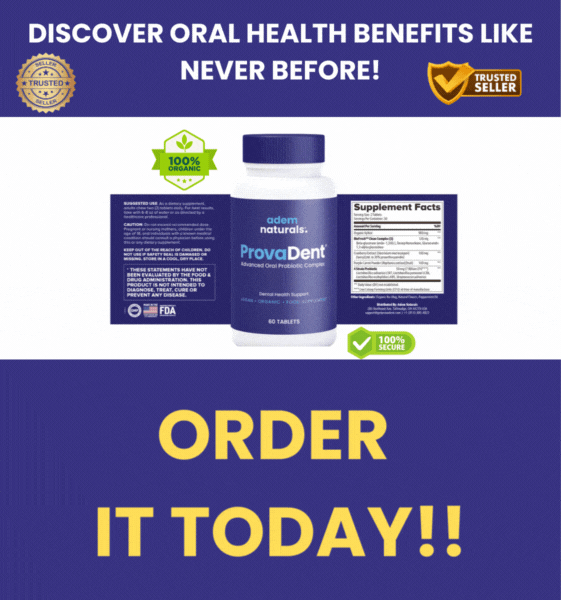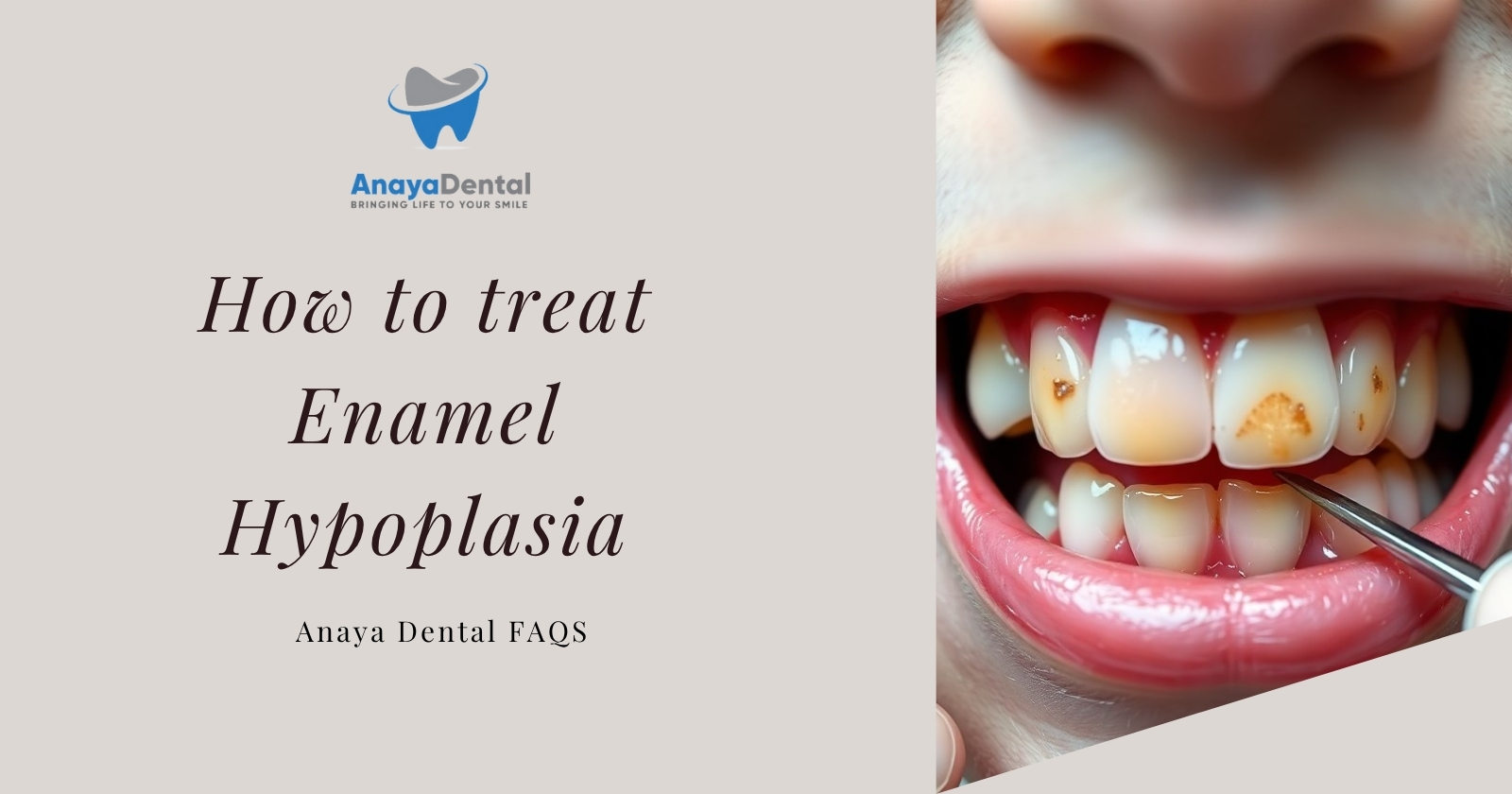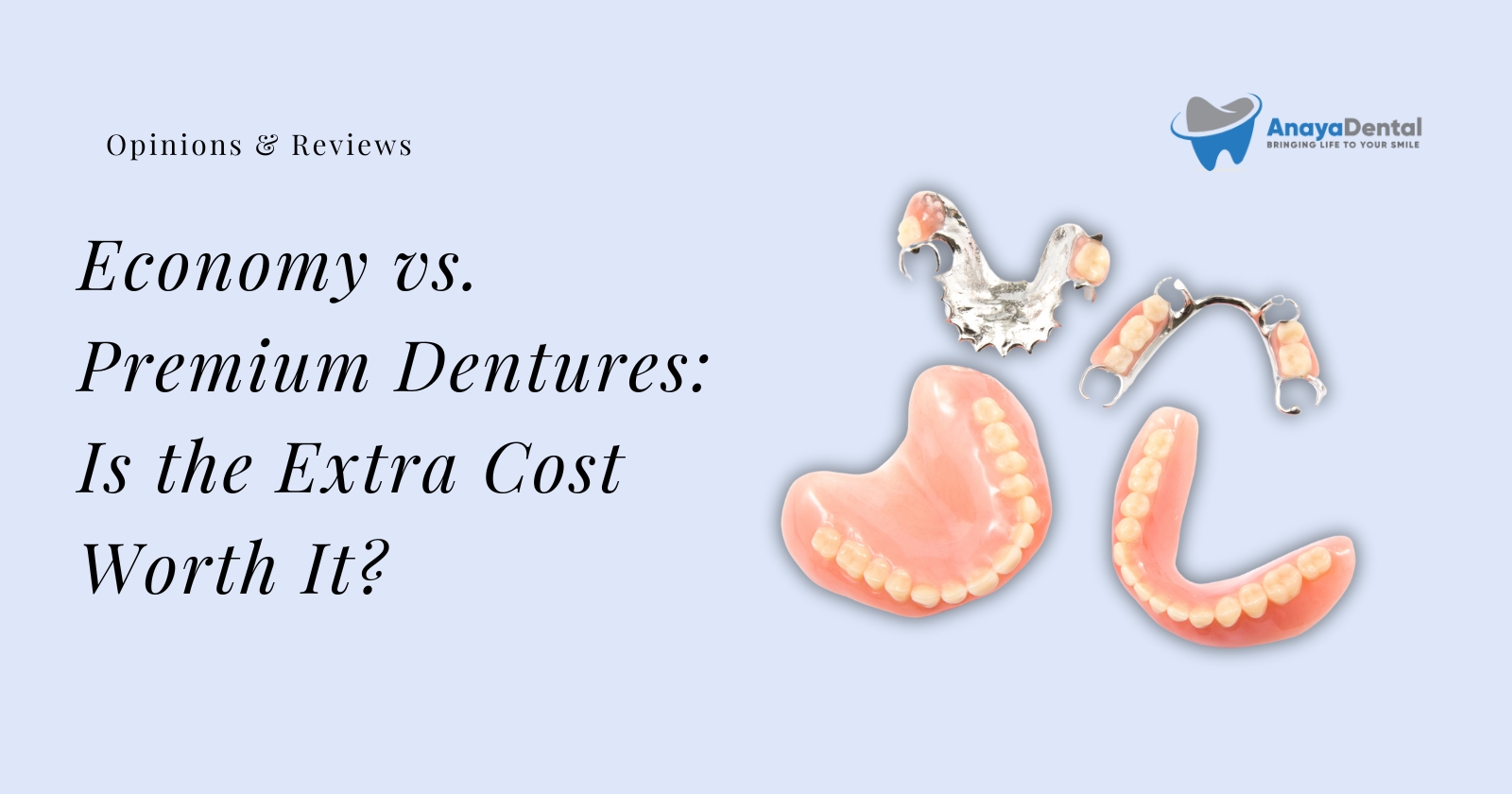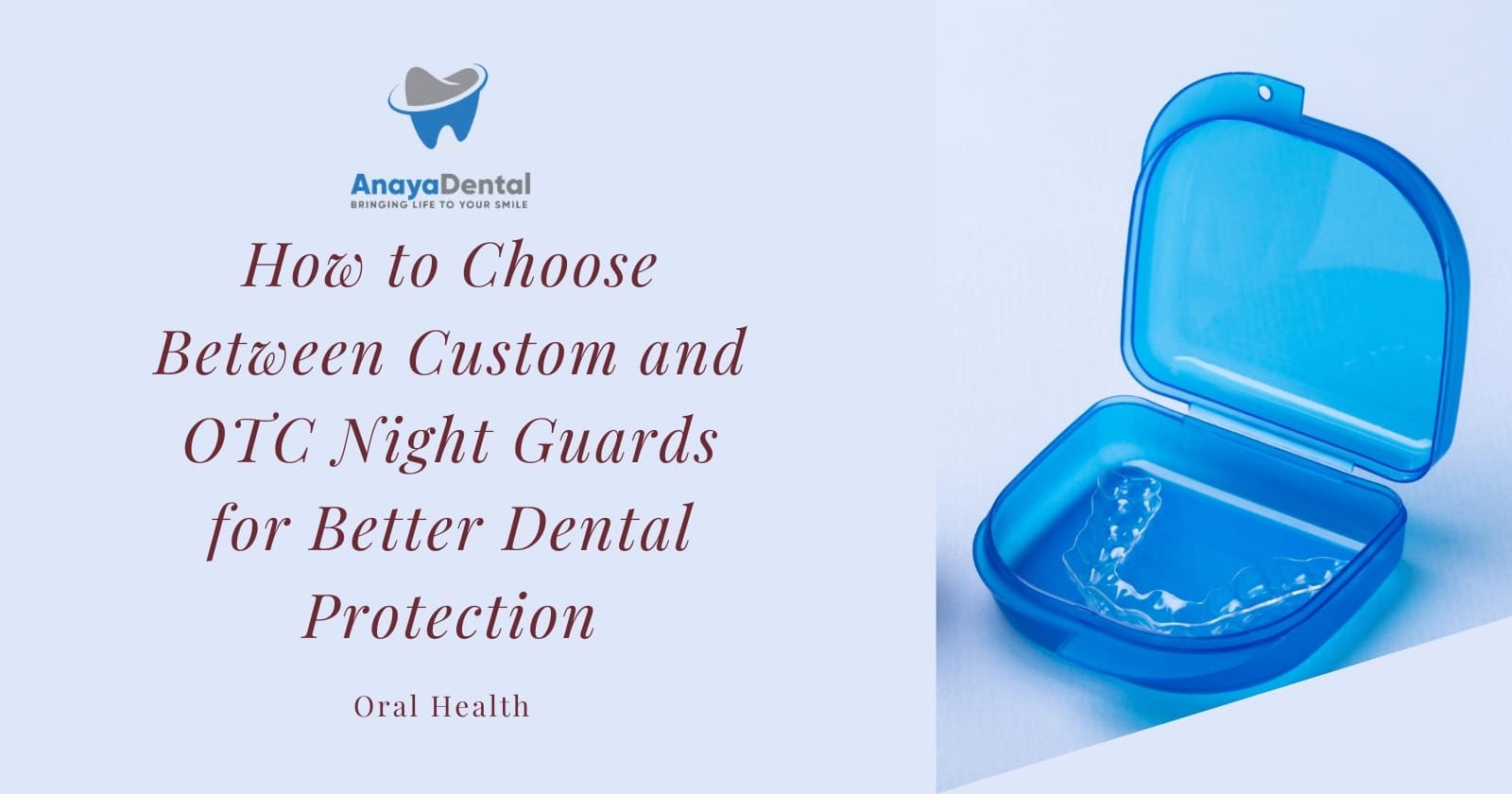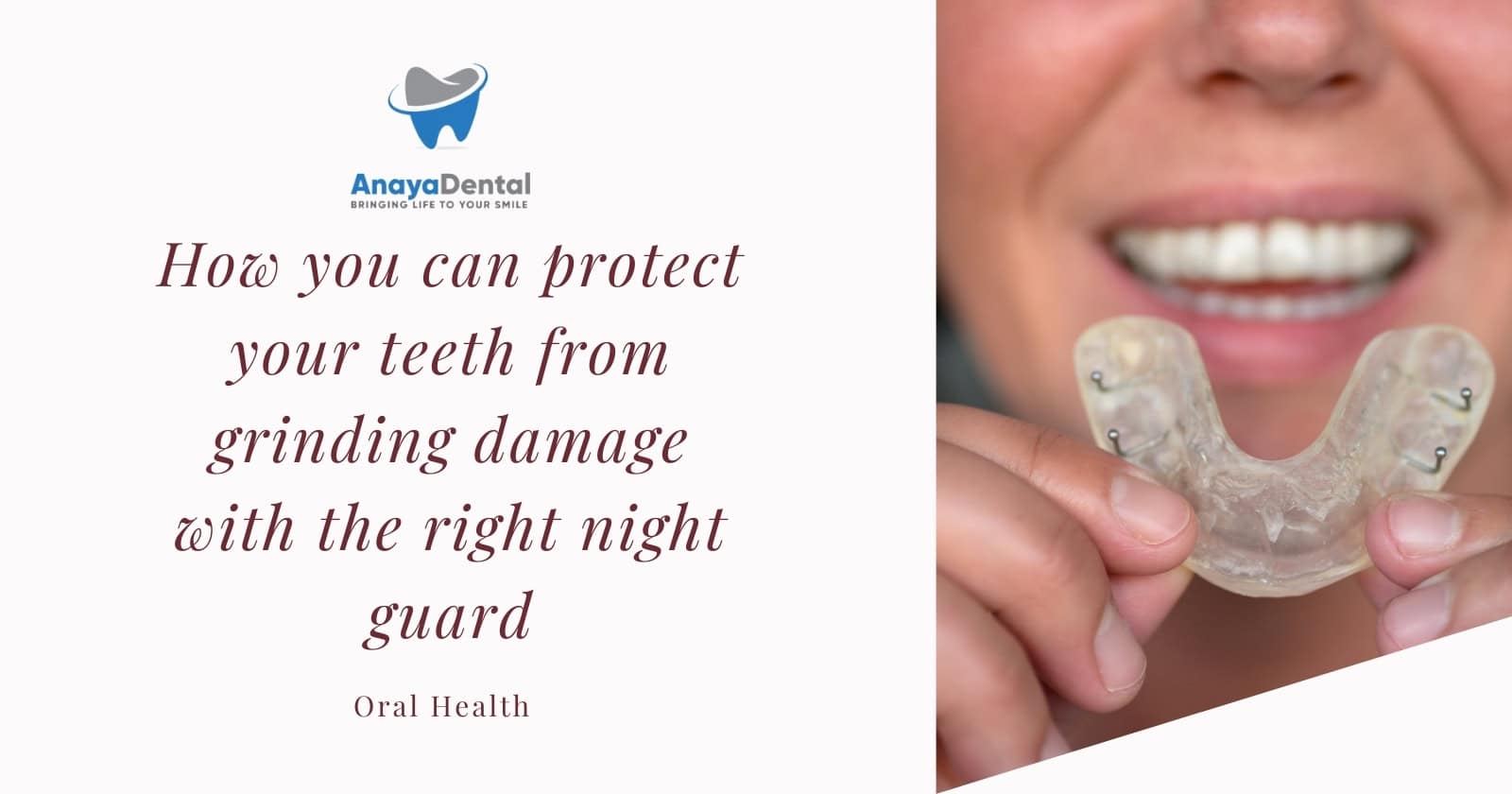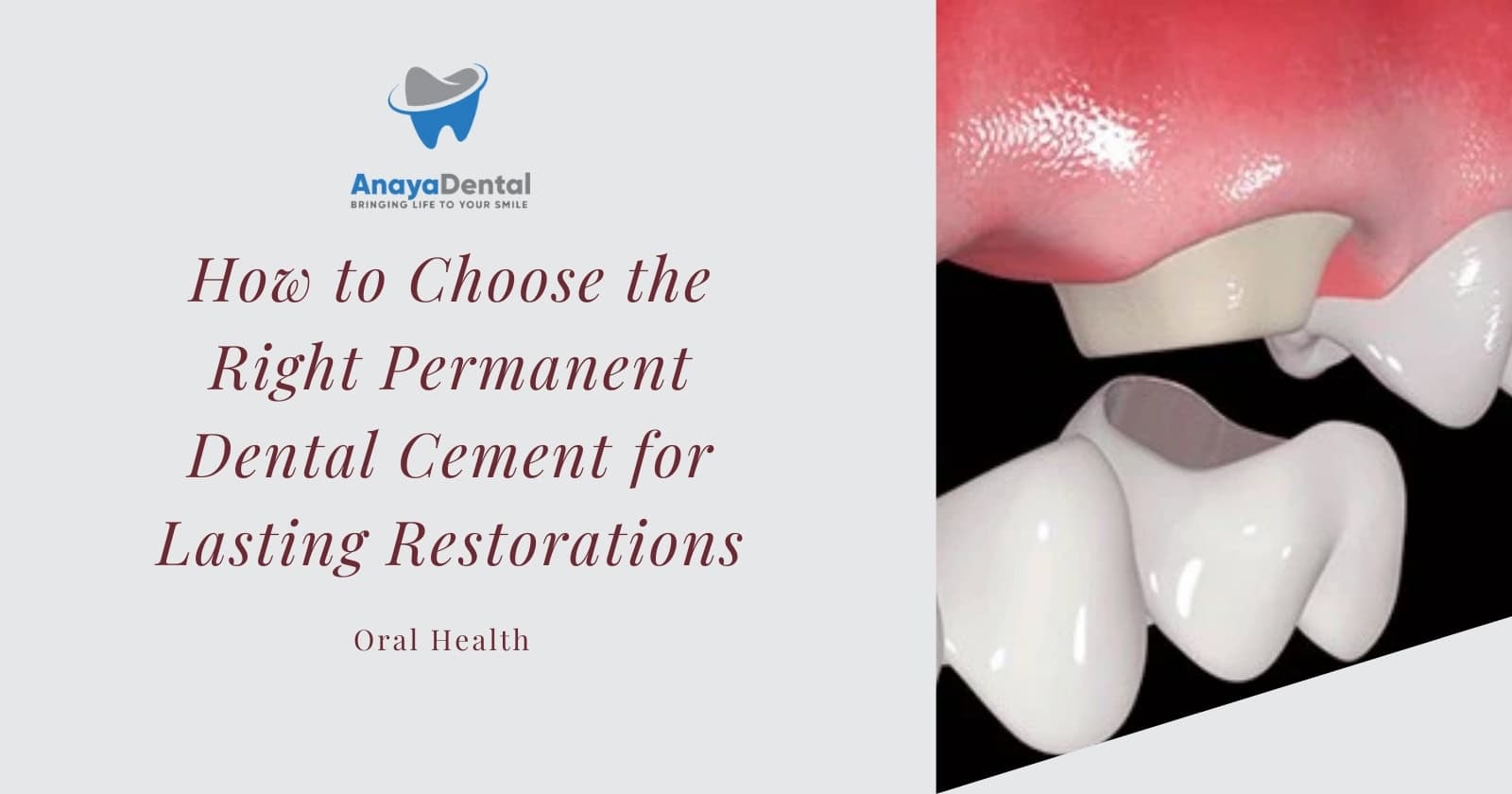Tooth infections, also known as dental abscesses, occur when bacteria invade the inner structure of a tooth or the surrounding gum tissues, leading to inflammation, pain, and sometimes systemic complications. Conventional antibiotics, such as amoxicillin or clindamycin, are commonly prescribed to control bacterial growth. However, concerns about antibiotic resistance, allergic reactions, and side effects have led many individuals to seek natural alternatives.
Natural antibiotics provide antimicrobial, anti-inflammatory, and pain-relieving properties while minimizing the risk of side effects. Many of these remedies have been used in traditional medicine for centuries and are supported by modern scientific research. While they can be effective in managing mild to moderate infections, severe dental abscesses still require professional intervention. Below, we explore some of the strongest natural antibiotics for tooth infections and how they work to combat harmful bacteria.
Causes of Tooth Infections
Infections usually arise from untreated dental issues, primarily cavities, or trauma. Poor oral hygiene can lead to plaque buildup, which hardens into tartar and eventually leads to decay. Bacteria can then enter the pulp through cracks or openings, resulting in an infection. Additionally, underlying conditions such as weakened immune systems may also increase your susceptibility to developing tooth infections.
Try Our Dental Calculators
The primary cause of tooth infections is often due to untreated dental decay, where bacteria produces acid that erodes the tooth enamel. Other factors include gingivitis, which can lead to periodontal disease, and dental procedures that may inadvertently introduce bacteria into the pulp. Lifestyle factors, like poor nutrition and smoking, can also play a role in your oral health, making it important to maintain proper oral hygiene and regular dental check-ups.
How Natural Antibiotics Help Fight Oral Infections
Natural antibiotics contain powerful antimicrobial, anti-inflammatory, and pain-relieving properties that help combat harmful bacteria, reduce swelling, and promote healing. Unlike pharmaceutical antibiotics, natural remedies are less likely to cause resistance and often provide additional health benefits.
Top Natural Antibiotics for Fighting Tooth Infections
1. Garlic: Nature’s Most Powerful Antimicrobial Agent

Garlic has been recognized for its medicinal properties for centuries. The primary bioactive compound in garlic, allicin, possesses potent antimicrobial and anti-inflammatory effects, making it a valuable natural antibiotic for treating bacterial infections, including those affecting the oral cavity. Allicin is released when garlic is crushed or chopped, and it has been shown to be effective against a wide range of bacteria, including Streptococcus mutans and Porphyromonas gingivalis, which are known contributors to dental infections and gum disease.
When used for a tooth infection, garlic can be applied directly to the affected area or consumed orally to enhance immune function. Crushing a fresh clove and allowing it to sit for a few minutes maximizes allicin formation. The paste can then be applied to the infected tooth for a few minutes before rinsing. Due to its strong taste and potential for irritation, it is advisable to mix garlic with a carrier such as olive oil or honey to improve tolerance. While garlic is highly effective in reducing bacterial load and inflammation, prolonged exposure can cause a burning sensation in the oral tissues. Therefore, it should be used with caution and supplemented with other natural remedies for optimal results.
2. Clove Oil: A Traditional Remedy for Tooth Pain and Infection
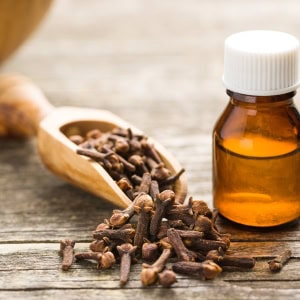
Clove oil has long been regarded as one of the most effective natural treatments for dental pain and infection. The key component in clove oil, eugenol, is known for its anesthetic, antibacterial, and anti-inflammatory properties. Eugenol has been widely studied for its ability to combat oral pathogens, making it a staple ingredient in dental care products and professional treatments for temporary pain relief.
The effectiveness of clove oil in treating a tooth infection lies in its ability to numb pain while inhibiting bacterial growth. Unlike synthetic anesthetics, clove oil not only reduces discomfort but also addresses the underlying infection. A few drops of clove oil can be diluted with a carrier oil and applied directly to the affected area using a cotton swab. Alternatively, whole cloves can be chewed slowly, releasing their natural oils to provide relief.
Clove oil is particularly beneficial in cases of pulpitis and periodontitis, where deep-seated infections cause significant pain. However, excessive use may lead to irritation, and individuals with sensitive gums should apply it cautiously. Clove oil remains a well-established, natural alternative to over-the-counter painkillers and antibiotic mouthwashes, making it a preferred choice for immediate relief.
3. Turmeric: The Anti-Inflammatory Powerhouse for Oral Health

Turmeric is widely recognized for its medicinal properties, particularly its anti-inflammatory and antibacterial effects. The active compound in turmeric, curcumin, has demonstrated significant efficacy in inhibiting the growth of bacterial strains commonly associated with oral infections. Research has shown that curcumin can help reduce inflammation and promote tissue healing, making it particularly useful for individuals suffering from gum infections, abscesses, and post-extraction complications.
Turmeric can be used in several ways to combat tooth infections. A simple turmeric paste, made by mixing turmeric powder with water or coconut oil, can be applied to the affected area. This helps in reducing swelling and controlling bacterial proliferation. Additionally, turmeric can be consumed in warm water or milk to support immune function and systemic healing.
One of the key advantages of turmeric is its long-term safety profile. Unlike pharmaceutical antibiotics, which can lead to antibiotic resistance and gut microbiome disturbances, turmeric promotes healing without adverse effects. However, due to its intense yellow pigment, prolonged use may cause temporary staining of the teeth, which can be counteracted by regular brushing.
4. Salt Water Rinse: A Simple Yet Effective Natural Disinfectant

A saltwater rinse is one of the most cost-effective and widely recommended home remedies for dental infections. The mechanism by which salt works is through osmosis, drawing out fluid from infected tissues while simultaneously reducing bacterial load. Salt also helps to alkalize the oral environment, making it less hospitable for bacterial growth.
Using a warm saltwater rinse several times a day can flush out bacteria, reduce inflammation, and soothe irritated gum tissues. The recommended concentration is one teaspoon of salt dissolved in a glass of warm water. The solution should be swished around the mouth for 30 seconds before spitting it out. This method is particularly useful for individuals with post-surgical wounds, gum infections, or mild abscesses.
Although salt water does not directly eliminate all bacteria, it creates conditions that prevent further bacterial multiplication. It is often used as a supportive treatment alongside other natural or conventional antibiotics.
5. Oregano Oil: A Potent Antiviral and Antibacterial Treatment
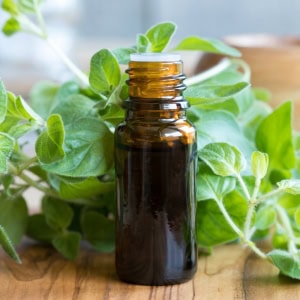
Oregano oil is a powerful natural antibiotic due to its high content of carvacrol and thymol, both of which exhibit strong antibacterial, antifungal, and anti-inflammatory properties. Research suggests that oregano oil is effective against drug-resistant bacteria, making it an ideal option for individuals looking to avoid pharmaceutical antibiotics.
To use oregano oil for a tooth infection, a few drops should be diluted with a carrier oil such as coconut or olive oil before application. This prevents mucosal irritation, as oregano oil is highly concentrated. Direct application to the infected tooth or gum area can help reduce bacterial growth and inflammation. Additionally, oregano oil can be added to warm water and used as a mouth rinse for broader antibacterial effects.
Oregano oil is particularly beneficial for individuals suffering from chronic dental infections, recurrent abscesses, and fungal overgrowths such as oral thrush. Its strong antimicrobial activity makes it one of the most effective natural antibiotics available, and its ability to penetrate biofilms—a protective layer formed by bacteria—sets it apart from many other natural remedies.
6. Oil Pulling with Coconut Oil: Detoxifying and Antibacterial Benefits

Oil pulling with coconut oil is a traditional Ayurvedic remedy known for its detoxifying and antibacterial properties. Coconut oil contains lauric acid, which helps reduce bacterial growth, including Streptococcus mutans, a major cause of tooth decay. Swishing coconut oil for 15-20 minutes daily can remove toxins, reduce plaque, and improve oral health.
7. Honey: Natural Healing and Antibacterial Properties

Honey, particularly raw and Manuka honey, is a well-documented natural antibiotic with strong antibacterial, anti-inflammatory, and wound-healing properties. It has been used in traditional medicine for centuries to treat infections, promote healing, and reduce inflammation. The effectiveness of honey in oral health care is primarily attributed to its high sugar content, hydrogen peroxide production, and the presence of methylglyoxal (MGO), which create an environment that inhibits bacterial growth.
Studies have shown that honey is particularly effective against oral pathogens such as Streptococcus mutans and Porphyromonas gingivalis, which are responsible for tooth decay, gum infections, and bad breath. Unlike conventional antibiotics, honey does not contribute to bacterial resistance and has the added benefit of reducing swelling, soothing irritated gums, and accelerating tissue repair.
To use honey for a tooth infection, a small amount of raw or Manuka honey can be applied directly to the infected tooth or gums. It acts as a natural antiseptic, helping to reduce bacterial load while soothing pain and inflammation. Another effective method is to mix honey with warm water and use it as a gentle antibacterial mouth rinse, which can help cleanse the oral cavity and promote healing.
8. Ginger: A Strong Natural Anti-Inflammatory for Oral Health

Ginger has been widely recognized for its anti-inflammatory, antibacterial, and analgesic properties, making it an effective natural remedy for tooth infections and gum diseases. The key bioactive compound in ginger, gingerol, has been shown to inhibit bacterial growth, reduce swelling, and alleviate pain. This makes ginger particularly useful in combating Streptococcus mutans and Porphyromonas gingivalis, two primary bacteria responsible for cavities and gum infections.
Fresh ginger can be used in several ways to support oral health and infection treatment. One of the simplest methods is to chew a small piece of fresh ginger to allow its juices to coat the infected area, providing immediate antibacterial action. Alternatively, a ginger paste can be made by grating fresh ginger and mixing it with a small amount of water or coconut oil. Applying this paste directly to the infected tooth or swollen gums can help reduce inflammation and bacterial activity.
Ginger tea is another effective way to support systemic immune function while soothing an infected tooth. A warm cup of ginger tea, made by boiling fresh ginger slices in water, can be used as a mouth rinse to further reduce bacterial load and inflammation. Unlike pharmaceutical antibiotics, ginger has no harmful side effects, making it a safe and effective natural remedy for mild to moderate oral infections.
9. Tea Tree Oil: An Effective Antiseptic for Bacterial Control
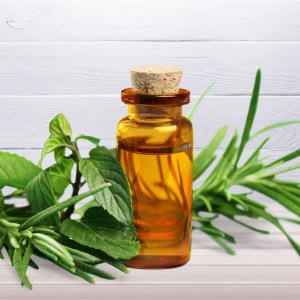
Tea tree oil is a potent natural antiseptic and antibacterial agent, widely used for its ability to combat oral bacteria responsible for infections and gum disease. Its primary active compound, terpinen-4-ol, exhibits strong antimicrobial and anti-inflammatory properties, making it particularly effective against Streptococcus mutans and Porphyromonas gingivalis, the bacteria linked to cavities and periodontal infections.
When used correctly, tea tree oil helps reduce bacterial growth, prevent plaque buildup, and alleviate gum inflammation. One of the safest methods to incorporate tea tree oil into an oral health routine is by diluting a few drops in water and using it as a mouth rinse. This helps disinfect the affected area without causing irritation. Alternatively, tea tree oil can be added to toothpaste or mixed with a carrier oil like coconut oil for direct application to infected gums.
While tea tree oil is highly effective, it is crucial to remember that it should never be swallowed, as it can be toxic when ingested in large amounts. Regular use can help maintain oral hygiene and prevent recurring infections, making it a valuable addition to natural dental care.
10. Aloe Vera: Cooling and Soothing Antimicrobial Gel for Gums

Aloe vera is widely known for its cooling, soothing, and healing properties, making it an excellent natural remedy for gum infections, swollen gums, and oral wounds. The gel extracted from aloe vera leaves contains powerful antibacterial, antifungal, and anti-inflammatory compounds that help eliminate harmful oral bacteria while promoting tissue regeneration.
One of the key benefits of aloe vera is its ability to reduce swelling and pain associated with tooth infections and gum disease. Studies have shown that aloe vera is effective against common *oral pathogens such as Streptococcus mutans and Candida albicans, which contribute to cavities and fungal infections like oral thrush. The polysaccharides and antioxidants in aloe vera also support faster wound healing, making it ideal for post-extraction care or gum abscess treatment.
To use aloe vera for oral infections, fresh aloe vera gel can be applied directly to the gums or affected tooth and left on for a few minutes before rinsing. Aloe vera juice can also be used as a natural mouth rinse to reduce inflammation and maintain oral hygiene. Unlike some natural remedies that can cause irritation, aloe vera is gentle on the gums, making it suitable for people with sensitive oral tissues. Regular use can help prevent infections, soothe irritation, and support overall gum health.
11. Apple Cider Vinegar: A Natural Remedy to Kill Harmful Bacteria

Apple cider vinegar (ACV) is a powerful natural antibacterial and antifungal agent that has been used for centuries in traditional medicine. Its primary active component, acetic acid, creates an acidic environment that helps kill harmful bacteria, prevent plaque buildup, and restore oral pH balance. This makes ACV particularly effective against oral pathogens such as Streptococcus mutans and Porphyromonas gingivalis, which contribute to cavities and gum infections.
One of the main benefits of ACV is its ability to break down bacterial biofilms, which are protective layers that allow bacteria to thrive in the mouth. By disrupting these biofilms, ACV enhances the effectiveness of other natural remedies and prevents infections from worsening. Additionally, its mild anti-inflammatory properties help reduce gum swelling and discomfort associated with tooth infections.
To use ACV as an oral rinse, it must be diluted properly to prevent enamel erosion and irritation. Mix one tablespoon of raw, unfiltered ACV with a cup of water, then swish it around your mouth for 30 seconds before spitting it out. This helps disinfect the infected area while maintaining oral hygiene. ACV can also be consumed in small amounts with water to support immune function and combat infections from within.
Although ACV is effective, overuse can weaken enamel due to its acidic nature. It is advisable to rinse with plain water after using ACV and to limit its direct contact with teeth. When used correctly, ACV serves as a natural and effective remedy for bacterial control, gum health, and overall oral hygiene.
12. Hydrogen Peroxide Rinse: Oxygen-Powered Bacteria Killer

Hydrogen peroxide is a well-known antiseptic that serves as an effective natural disinfectant for oral infections. Its antimicrobial properties stem from its ability to release oxygen when it comes into contact with tissues, effectively killing bacteria, breaking down plaque biofilms, and reducing inflammation in infected areas. This makes hydrogen peroxide particularly useful for treating tooth infections, gum abscesses, and oral wounds.
One of the primary benefits of hydrogen peroxide is its ability to eliminate anaerobic bacteria, which thrive in oxygen-deprived environments, such as deep gum pockets and infected tooth roots. By introducing oxygen to the affected area, hydrogen peroxide not only destroys harmful bacteria but also helps remove pus and debris from an abscess. Additionally, it acts as a natural whitening agent, helping to remove surface stains and improve overall oral hygiene.
To use hydrogen peroxide as a mouth rinse, a 3% hydrogen peroxide solution should be diluted with equal parts water before swishing it in the mouth for 30 seconds. This helps disinfect the infected area, reduce swelling, and promote healing. However, it is crucial to spit out the solution after rinsing, as swallowing hydrogen peroxide can cause irritation and nausea. It is also advisable to limit usage to a few times per week to prevent irritation of the oral tissues.
For individuals experiencing persistent tooth infections or gum disease, hydrogen peroxide can serve as a powerful adjunct to regular oral care, providing oxygenation, bacterial control, and enhanced wound healing. However, it should be used responsibly, in moderation, and in conjunction with other oral hygiene practices.
13. Peppermint Oil: A Natural Pain Reliever and Antibacterial Agent
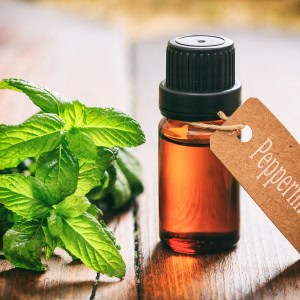
Peppermint oil is a highly effective natural remedy known for its antibacterial, analgesic, and anti-inflammatory properties, making it a valuable treatment for tooth infections and oral pain relief. The primary active compound in peppermint oil, menthol, provides a cooling effect that helps soothe toothache, reduce gum inflammation, and numb discomfort. Additionally, peppermint oil has been found to exhibit strong antimicrobial activity against oral bacteria, including Streptococcus mutans and Lactobacillus, which contribute to cavities and gum disease.
One of the key benefits of peppermint oil is its ability to penetrate bacterial biofilms, breaking down the protective layers that bacteria use to survive in the oral cavity. This enhances its effectiveness in reducing bacterial growth and preventing plaque formation. Moreover, peppermint oil has a natural refreshing effect, helping to eliminate bad breath (halitosis), which is often associated with oral infections.
To use peppermint oil for a tooth infection, it can be applied topically by diluting a few drops with a carrier oil, such as coconut or olive oil, and gently massaging it onto the affected area. This provides pain relief while reducing bacterial activity. Alternatively, peppermint oil can be added to warm water and used as a mouth rinse, which helps disinfect the entire oral cavity. For additional benefits, peppermint tea can be consumed to provide systemic antibacterial effects and promote overall oral health.
Peppermint oil is a safe and effective alternative to over-the-counter pain relievers and chemical-laden mouthwashes. However, it should be used in moderation, as excessive use can cause oral sensitivity. When used properly, peppermint oil serves as a powerful natural solution for managing oral infections, relieving pain, and maintaining fresh breath.
14. Echinacea: An Immune Booster Against Infections

Echinacea is a powerful herbal remedy widely known for its immune-boosting and antimicrobial properties, making it an excellent natural antibiotic for tooth infections and oral health issues. It has been used for centuries in traditional medicine to fight bacterial and viral infections, and modern research has confirmed its effectiveness in enhancing the body’s natural defense mechanisms against harmful pathogens.
The key bioactive compounds in echinacea, including alkamides, polysaccharides, and flavonoids, work by stimulating the immune system to produce more white blood cells, which are essential for fighting infections. Additionally, echinacea exhibits direct antibacterial effects, particularly against Streptococcus mutans, a major contributor to dental cavities and gum disease. Its anti-inflammatory properties also help reduce swelling and pain associated with oral infections.
15. Thyme Oil: A Natural Antibacterial and Antiseptic Herb
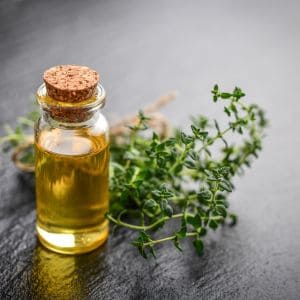
Thyme oil is a potent natural antibiotic and antiseptic that has been used for centuries in herbal medicine to combat infections, including those affecting the oral cavity. The key active compound in thyme oil, thymol, is well-known for its strong antibacterial, antifungal, and anti-inflammatory properties. Due to its effectiveness in fighting oral pathogens such as Streptococcus mutans and Porphyromonas gingivalis, thymol is a common ingredient in many commercial mouthwashes and dental products.
One of the main benefits of thyme oil is its ability to break down bacterial biofilms, making it highly effective against persistent dental infections. Its antimicrobial activity helps prevent the growth of bacteria that lead to gum disease, cavities, and plaque formation. Additionally, thyme oil has natural analgesic properties, making it beneficial for individuals experiencing tooth pain or gum inflammation due to infection.
To use thyme oil for a tooth infection, it should always be diluted with a carrier oil such as coconut or olive oil to prevent irritation. A few drops of diluted thyme oil can be applied directly to the infected area using a cotton swab to reduce bacterial activity and soothe discomfort. Alternatively, thyme oil can be added to warm water and used as a mouth rinse, helping to disinfect the entire oral cavity while freshening breath.
When to Seek Professional Help: Balancing Natural and Medical Treatments
While natural antibiotics can be highly effective in managing mild to moderate tooth infections, they are not a substitute for professional dental care in severe or persistent cases. Tooth infections can escalate quickly, potentially leading to serious complications such as abscess formation, systemic infections, or even sepsis if left untreated. Knowing when to use natural remedies and when to seek professional help is crucial for maintaining oral and overall health.
Signs That Natural Remedies May Be Enough
Natural antibiotics such as garlic, clove oil, honey, and hydrogen peroxide can be effective for early-stage infections, minor gum inflammation, or mild toothaches caused by bacterial overgrowth. If symptoms gradually improve with the use of these remedies, professional treatment may not be necessary. However, continued monitoring of symptoms is essential to ensure the infection does not progress.
When to Seek Professional Dental Care
Certain symptoms indicate that a tooth infection has become severe and requires immediate professional attention. These include:
- Persistent or worsening pain that does not improve with natural treatments
- Swelling in the gums, face, or jaw, which may indicate an abscess
- A visible pus-filled pocket near the affected tooth
- Fever, chills, or general malaise, which suggest the infection is spreading
- Difficulty swallowing or breathing, which can signal a life-threatening condition
- A bad taste or foul odor in the mouth that persists, even after rinsing
- Loose teeth or receding gums, indicating possible advanced periodontal disease
If any of these symptoms occur, delaying professional treatment can lead to serious health risks, including the spread of bacteria to the bloodstream (bacteremia or sepsis) or even to the brain.
Balancing Natural and Medical Approaches
For mild infections, natural remedies can be used as a first-line approach to reduce bacterial growth and inflammation. However, if symptoms persist beyond 48-72 hours, worsen, or show signs of systemic infection, seeking immediate dental care is essential.
Additionally, combining natural treatments with good oral hygiene practices, such as brushing, flossing, and regular dental check-ups, can prevent infections from occurring in the first place. A balanced approach—leveraging both natural remedies for minor issues and professional treatments when necessary—ensures the best possible outcomes for oral and overall health.
